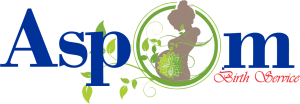HEALTHY EATING DURING PREGNANCY
HEALTHY EATING DURING PREGNANCY
During pregnancy your unborn baby gets all their nutrients from you. Healthy food choices before, during and after pregnancy help
- You stay healthy and well
- Your baby grow healthy and strong.
If you are planning a pregnancy, good diet and a healthy lifestyle will help your body prepare for the pregnancy and give your baby a good start. Healthy eating during pregnancy may also protect your baby against diseases in later life.
During pregnancy you need extra energy and nutrients. You do not need to eat for two, but you will need to eat regular meals with a variety of foods. What you eat is as important as how much you eat.
A healthy varied diet is important for you and your baby. The following nutrients are particularly important.
- Folic acid,
- Iron and vitamin C,
- Calcium and vitamin D,
- Omega-3 and omega-6 fatty acids.
- FOLIC ACID:
Folic acid is an important vitamin for a healthy pregnancy. It helps prevent conditions such as spina bifida and other neural tube defects (NTDs)
problems that can affect the baby’s spine. Spina bifida and NTDs are caused when the neural tube, which will become the baby’s spine, does not form properly in early pregnancy. Folic acid is most important in the months before becoming pregnant and the first 12 weeks of your pregnancy.
During this time you need to take a tablet that contains 400 micrograms (400µg) of folic acid every dayGood sources of folates Green vegetables, such as broccoli, brussels sprouts and spinach Beans and peas Some fruits, such as oranges Yeast or malt extract Some brands of bread, breakfast cereal, milk and other foods may have folic acid added to them. Read the packaging to check.
- IRON AND VITAMIN C:
Iron is important to help make the extra blood needed by you and your baby. Vitamin C is also important and it helps your body use the iron from food. Good sources of iron Red meat, such as beef, lamb and pork Chicken and fish
Other (non-meat) sources of iron
Eggs Breakfast cereals with added iron Pulses, such as beans, peas and lentils Dried fruit, such as prunes and apricots Green vegetables, such as broccoli and spinach
Aim to eat iron-rich foods every day. If you do not eat meat, make sure you include non-meat sources of iron every day combined with food rich in vitamin C to help your body use the iron.
You may also need iron tablets, particularly if you have had a baby in the last year or two.
Ask your doctor or midwife to advise you. Some foods, such as high-fibre cereal, milk, tea and coffee, reduce your body’s ability to use iron. Try not to have these at the same time as you take iron tablets or eat foods that are rich in iron.
- CALCIUM AND VITAMIN D:
Good sources of vitamin C Citrus fruits, such as oranges Kiwis Berries Tomatoes Juice made from fruits rich in vitamin C Potatoes Peppers Green vegetables, such as broccoli, brussels sprouts and spinach Include at least 2 servings of fruits or vegetables rich in vitamin C as part of your 5 or more servings of fruit and vegetables each day.
Examples of a serving include: 1 medium-sized fruit, such as an orange, 2 small fruits, for example 2 kiwis, or 1 glass of fruit juice. When preparing vegetables, be careful not to over-cook them, as this reduces the amount of vitamin C they contain.
One good way to combine vitamin C and iron is to try drinking a glass of orange juice with cereal or a boiled egg. This helps your body make the most of the iron in these foods.
Good sources of vitamin D
Oily fish, such as herring, mackerel and sardines Egg yolks Small amounts of everyday sunlight – vitamin D is made in the body when skin is exposed to sunlight Some brands of milk, breakfast cereal and margarine may have vitamin D added to them. Read the packaging to check.
If you are dark skinned, get no exposure to the sunlight or do not eat foods rich in vitamin D, ask your doctor or midwife if you need to take vitamin D tablets.
- OMEGA-3 AND OMEGA-6 FATTY ACID:
Omega-3 and omega-6 fatty acids are important for developing your baby’s brain and eyes.
Good sources of fatty acids Oily fish, such as herring, mackerel, salmon, sardines and trout White fish, such as cod and whiting Some vegetable oils, such as rapeseed (canola), flaxseed, linseed and walnut – used in small amounts when cooking.
Other sources of fatty acids Meat, chicken and eggs Seeds, such as sunflower, safflower, pumpkin and sesame Vegetables Wholegrain breads and breakfast cereals Aim to eat 1 portion of oily fish each week.
A portion is a piece of fish weighing 90g (3oz). If you do not eat oily fish, include other sources of omega-3 and omega-6 in your diet from the list above. White fish is also good for you. Eat 1 portion of white fish such as cod or whiting each week.


Leave a Reply
Want to join the discussion?Feel free to contribute!